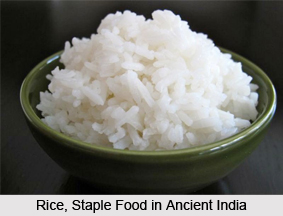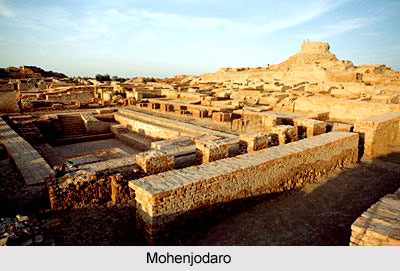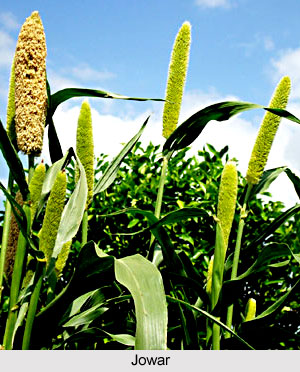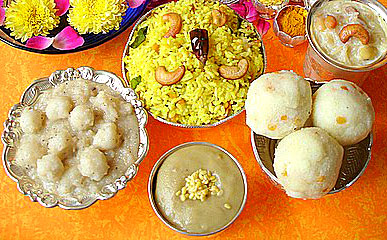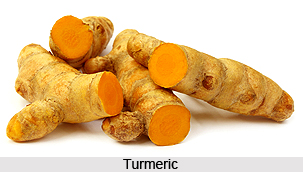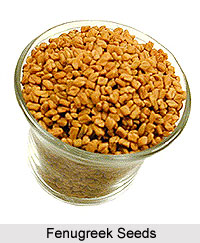 Benefits of Fenugreek include the benefits derived from its medicinal properties, herbal attributes and culinary usage. Since the ancient era, the use of Fenugreek seeds and leaves has been considered of great value. Ancient people used fenugreek to make forage more palatable to livestock.
Benefits of Fenugreek include the benefits derived from its medicinal properties, herbal attributes and culinary usage. Since the ancient era, the use of Fenugreek seeds and leaves has been considered of great value. Ancient people used fenugreek to make forage more palatable to livestock.
Fenugreek is one the primary herbs that is used for medicinal purposes. In fact Naturopathy has always considered fenugreek as a medicated plant. The practitioners of India as well as of other countries rely on fenugreek for curing kidney problems and conditions affecting the male reproductive tract. The seeds of fenugreek can be used to make tea which is known to increase milk secretion in nursing mothers. During the early stages of any of the respiratory tract infections such as Bronchitis, Influenza, Sinusitis, Catarrh and suspected Pneumonia, Fenugreek tea helps to perspire, dispel toxicity and shorten gestation period of fever. Fenugreek tea has a soothing effect on the inflamed stomach and intestines. It cleans the stomach, bowls and kidneys. It helps healing peptic ulcers by providing coating of mucilaginous matter.
In addition to these fenugreek seeds are used to lower blood sugar levels. Its seeds can be taken for diabetes - a glass of water or milk in which a tablespoon of fenugreek seeds has been soaked overnight is drunk each morning. Fenugreek contains an amino acid which is known as 4-hydroxyisoleucine. It increases the body`s production of insulin when blood sugar levels are high. Higher insulin production may decrease the amounts of sugar in blood. According to the studies of animals and humans with both diabetes and high cholesterol levels, it has been observed that fenugreek lowered cholesterol levels as well as blood sugar levels.
The physicians of Ayurveda reckon fenugreek as a beneficial medicine in increasing the milk in mother`s breast. This is also believed that fenugreek seeds help to lessen blood sugar and reduce the need for insulin. It may also improve glucose tolerance and excretion. As per some researches conducted in different institutions, it has been discovered that the benefits of fenugreek may inhibit the absorption of cholesterol as well as decrease the amount of cholesterol manufactured by the liver.
 Further studies on fenugreek reveal that it is effective in reducing the amounts of calcium oxalate in the kidneys. Calcium oxalate often contributes to kidney stones. In animal studies, fenugreek also appeared to lessen the chance of developing colon cancer by blocking the action of certain enzymes. Fenugreek is also regarded as an effective topical treatment for skin problems such as abscesses, boils, burns, eczema, gout and ulceration of the skin. Topically, the gelatinous texture of fenugreek seed may have some benefit for soothing skin that is irritated by eczema or other conditions. It has also been applied as a warm poultice to relieve muscle aches and gout pain.
Further studies on fenugreek reveal that it is effective in reducing the amounts of calcium oxalate in the kidneys. Calcium oxalate often contributes to kidney stones. In animal studies, fenugreek also appeared to lessen the chance of developing colon cancer by blocking the action of certain enzymes. Fenugreek is also regarded as an effective topical treatment for skin problems such as abscesses, boils, burns, eczema, gout and ulceration of the skin. Topically, the gelatinous texture of fenugreek seed may have some benefit for soothing skin that is irritated by eczema or other conditions. It has also been applied as a warm poultice to relieve muscle aches and gout pain.
The benefits of Fenugreek incorporate some medical cures. The practitioners of Ayurveda as well as of Naturopathy use this ingredient to reduce menstrual discomfort. It is considered as a potent menstruation ease promoter. It also minimizes symptoms of menopause. According to the studies and researches Fenugreek consumption helps to reduce cholesterol level. Fenugreek helps to reduce the level of low density Lipoprotein (LDL) significantly. Fenugreek is beneficial in many other diseases like it reduces cardiovascular risk, Controls diabetes, relieves sore throat pain and cough, helpful in constipation and diarrhoea and also relieves minor indigestion, heals kidney troubles. Moreover, fenugreek is used to prevent colon cancer.
Benefits of Fenugreek will remain incomplete without saying its usage as good appetite suppressant and it prevents and repairs damages caused by free radicals. It is also good to improve metabolism and health. Fenugreek is used to treat wounds, inflammation and gastrointestinal ailments. The medical practitioners prescribe external application of fenugreek for irritated skin condition, fevers and muscle aches. Fenugreek seeds contain a lot of mucilage, which helps sooth gastrointestinal inflammation by coating the lining of the stomach and intestine and it is also effective remedy against heartburn or Acid Reflux.
The fenugreek as herb is used to reduce fever when taken with lemon and honey. It nourishes the body during an illness. Moreover, fenugreek plays an important function in balancing the women`s hormones and helps to enlarge the undergrowth breasts. In addition to that fenugreek stimulates uterine contractions and is helpful to induce childbirth.
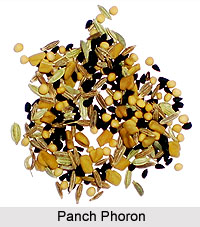 Apart from the medicinal benefits of fenugreek, it is used as a major ingredient in the culinary habits of many states of India. Being an ancient spice fenugreek is widely used in India for making pickles. Dry toasting of fenugreek seeds without overheating can enhance the flavour and reduce the taste of bitterness. It is also considered to be a safe herbal food. Besides the seeds, the leaves of fenugreek are also an important spice from Central Asia to Northern India. In Northern India, the fenugreek leaves are sometimes found in the typical yeast bread `naan` called `methi naan`. The usage of fenugreek leaves are mostly seen among the inhabitants of South India. In South India, dried fenugreek leaves are often used as flavouring for potato curries. It is usually toasted and ground with other spices to give countless spice blends, or fried in oil to improve its flavour. Fenugreek is also popular in the South of India and appears in the ubiquitous Tamil spice mixture `sambar podi`. Lastly, the bitter-aromatic seeds constitute an essential part of the Bengali five spice mixture `panch phoron`.
Apart from the medicinal benefits of fenugreek, it is used as a major ingredient in the culinary habits of many states of India. Being an ancient spice fenugreek is widely used in India for making pickles. Dry toasting of fenugreek seeds without overheating can enhance the flavour and reduce the taste of bitterness. It is also considered to be a safe herbal food. Besides the seeds, the leaves of fenugreek are also an important spice from Central Asia to Northern India. In Northern India, the fenugreek leaves are sometimes found in the typical yeast bread `naan` called `methi naan`. The usage of fenugreek leaves are mostly seen among the inhabitants of South India. In South India, dried fenugreek leaves are often used as flavouring for potato curries. It is usually toasted and ground with other spices to give countless spice blends, or fried in oil to improve its flavour. Fenugreek is also popular in the South of India and appears in the ubiquitous Tamil spice mixture `sambar podi`. Lastly, the bitter-aromatic seeds constitute an essential part of the Bengali five spice mixture `panch phoron`.
Although there are many benefits of fenugreek seeds and leaves, there are some side effects that should be considered though they are minimal. This herb is generally regarded as safe when taken in recommended dosages. Increased amounts (over 100g daily) may cause diarrhea and nausea. Another problem that can be taken for consideration, high intake of fenugreek can cause mild gastro intestinal distress. Fenugreek is not well recommended during pregnancy because it may lead to miscarriage.
The benefits of fenugreek include its various usages varying from its culinary usage to medicinal properties. In modern time, some medical practitioners recommend to intake fenugreek considering its curative effects.

